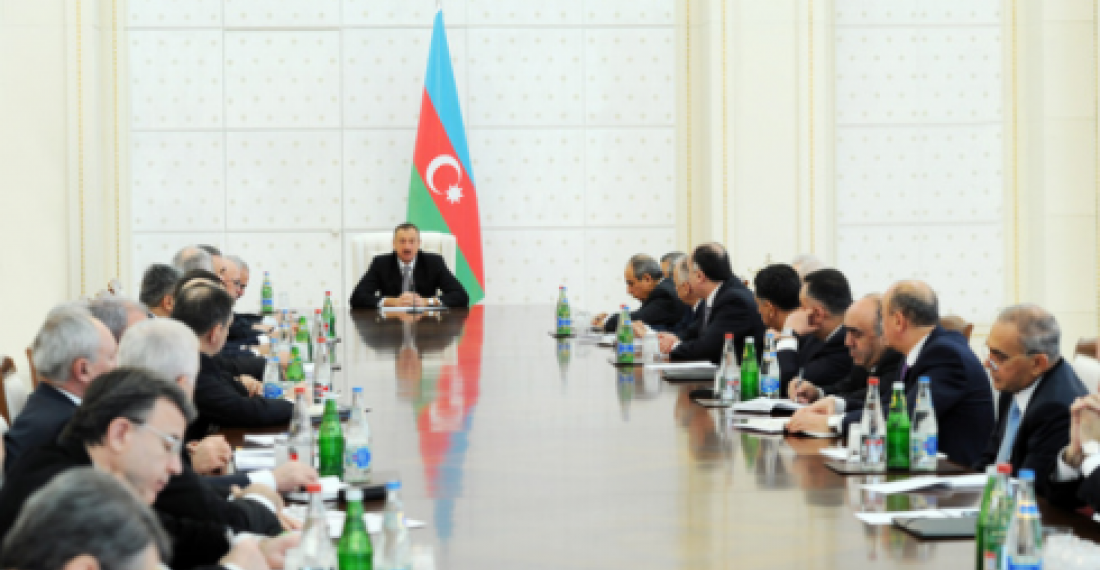Azerbaijan's annual state budget and the amount of external reserves have hit record levels this year. Speaking to a speciual session of the Cabinet of Ministers earlier this week President Aliev said that the state budget for 2013 will amount to 20 billion manats (around US$ 25 billion), whilst foreign reserves have now reached USD 46 billion. The President said that these figures ensure the economic stability of Azerbaijan. The President further added that external debt was less than 8% of GDP.
In his speech Aliev referred to concerns he raised some months ago about the production of oil, which is Azerbaijan's main foreign currency earner. The President said:
"I am very glad that the concern over production of oil which I expressed at a Cabinet meeting some time ago was properly understood by our partners. And I can say that as a result of the measures taken, oil production will stabilize in 2013. We have achieved this as a result of talks with bp. I am very pleased that mutual understanding between bp and SOCAR has been restored, and today these ties, which have a long history, are entering into a new phase. There is a lot to do in the future. The implementation of the Shah Deniz-2 project, maintaining oil production at a stable level for many years to come, regional projects, the TANAP and other projects are strengthening our cooperation. I want to reiterate that we should and do openly discuss both positive and disturbing issues. The main issues are resolved through daily hard work. I think this is the right approach because we need to value our partners. If we see a positive response from them, of course, this makes us happy and creates favorable conditions for continued cooperation."
Commonspace.eu political editor said in a comment:
"Azerbaijan is now in a position to flex its economic muscle both regionally and globally. Regionally its options are limited because of the peculiar relatioship that it has with all its neighbouring countries. It is at war with Armenia; its has a complicated not always very friendly relationship with Iran; it tries to maintain good relations with Russia but is dissapointed with Russian continued support to Armenia over the Karabakh issue. Regional economic co-operation has therefore largely been concentrated on projects with Turkey, and to a lesser extent Georgia. Azerbaijan has an opportunity of consolidating its relationship with Georgia through a systematic programme of investment, and this process seems to have started.
Globally Azerbaijan is still trying to understand what role suits it best. Its sovereign wealth fund has so far been cautious in the way it places its investments, but a more enterprising approach is likely in the future.
The message from Baku is that there is a new kid on the block, and the world better take noitce.
There remains in the Azerbaijani economy a number of structural problems, as a result of incomplete reforms, problems with the independence of the judiciary, corruption, and the negative role played by monopolistic forces in the economy. The President tried to address some of these issues in his speech. Financial gains from energy resources can hide more deep rooted economic problems and this may well be happening in Azerbaijan. The success of the moment can only be sustained if these problems are addressed."
Source: Commonspace.eu
photo: President Aliev addressing a meeting of the Cabinet of Ministers in Baku on 15 January 2013.







